NASA Releases More Pics Of Freaky Rectangular Iceberg
New
photos of a surprisingly rectangular iceberg are offering the full
picture of this now-famous Antarctic structure — and it remains
weird as hell.
Scientists
with NASA’s Operation IceBridge released
the original photo last week,
but it only showed a portion of the odd iceberg.
With
much of the ‘berg out of the frame, it wasn’t clear how geometric
the entire structure really was. Now, new photos released by
IceBridge scientists reveal the iceberg’s true shape. It isn’t a
perfect rectangle, but it’s still a highly angular quadrilateral.
These
photos were captured by IceBridge senior support scientist Jeremy
Harbeck, who spotted the tabular iceberg near the Larsen C ice shelf.
Tabular icebergs are the products of calving ice shelves — when
large chunks of ice suddenly break loose — and they’re known for
their highly angular lines and smooth tops.
“I
thought it was pretty interesting,” said Harbeck in a NASA
statement. “I often see icebergs with relatively straight edges,
but I’ve not really seen one before with two corners at such right
angles like this one had.”
In
July 2017, Antarctica’s Larsen C ice shelf released the enormous
A68 iceberg, which weighs about 1000 billion tonnes and occupies an
area roughly the size of the state of Delaware. Harbeck and his
colleagues were investigating this massive structure when the
geometric shape was spotted.
“I
was actually more interested in capturing the A68 iceberg that we
were about to fly over, but I thought this rectangular iceberg was
visually interesting and fairly photogenic, so on a lark, I just took
a couple photos,” Harbeck said.
Interestingly,
Harbeck spotted a second rectangular iceberg during the same 16
October 2018 flyby. In the photo above, you can actually see three
icebergs of note: The now-famous freakishly geometric iceberg at far
left (slightly obscured by the plane’s engines); the new tabular
iceberg; and, off to the horizon, the A68 iceberg.
Yes,
it’s that huge — the expanse along the horizon line is a
free-floating iceberg measuring about 100km in length and about 30km
wide.
Here
are some other photos of tabular icebergs, many of which were
produced by the Larsen C ice shelf during the A68 calving event.
NASA’s
Operation IceBridge is an ongoing mission to monitor polar regions
and track the planet’s global climate system. It’s currently in
the midst of a five-week project to chart icebergs in the Northern
Antarctic Peninsula, a mission that’s scheduled to conclude on
November 18. There’s still plenty of time left in the project, so
hopefully the scientists will uncover more Antarctic anomalies.
Ever seen this? (from 2001: A Space Odyssey)
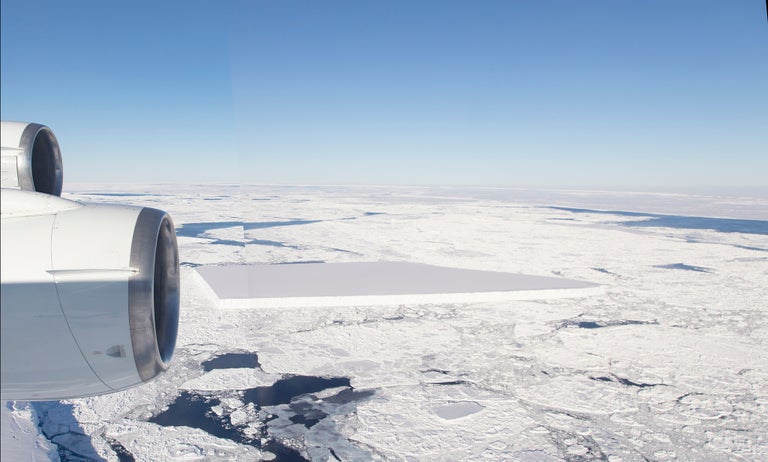
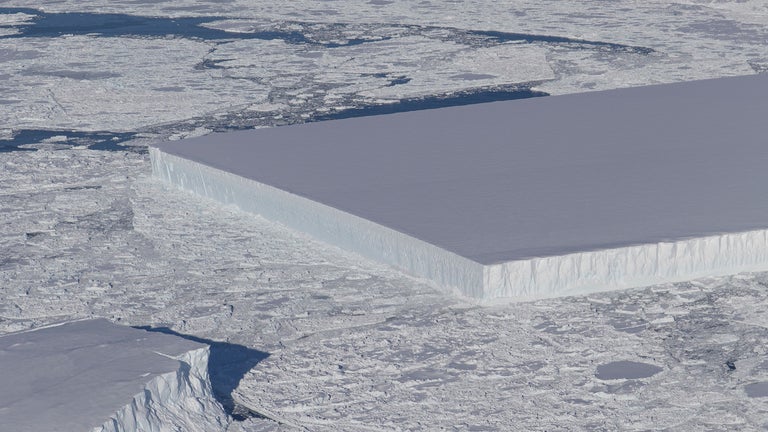
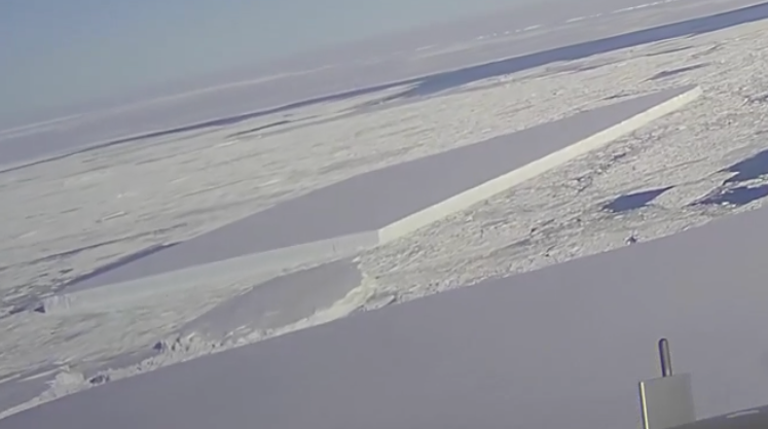
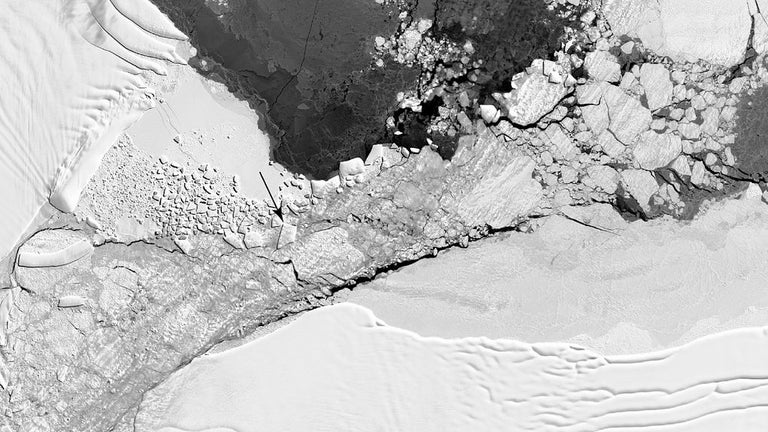
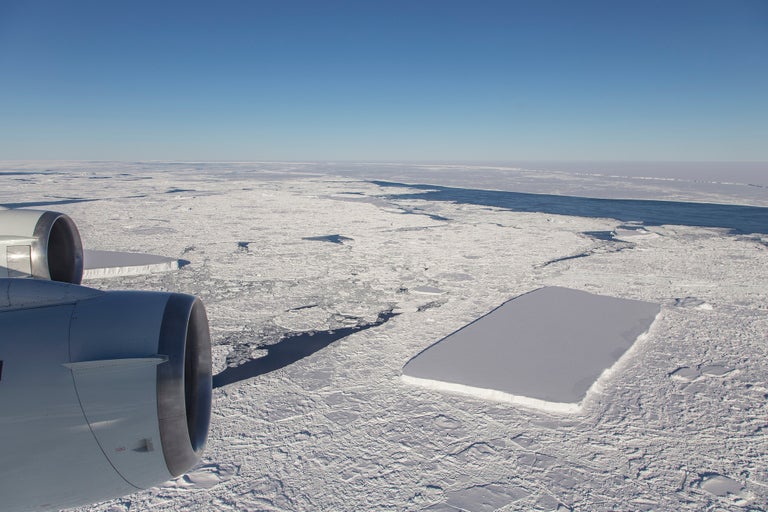
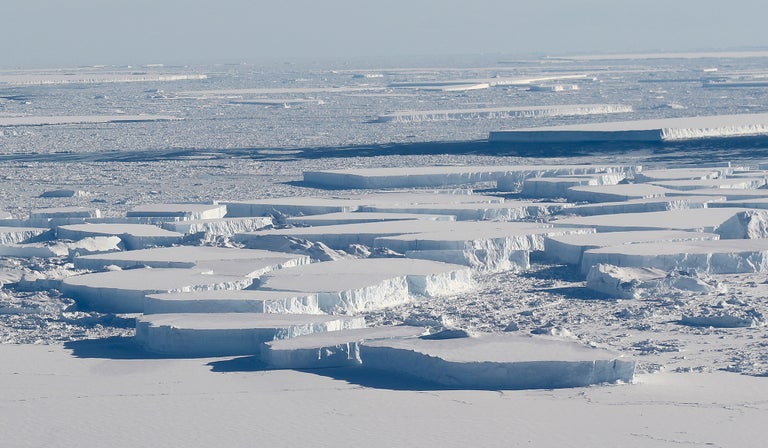
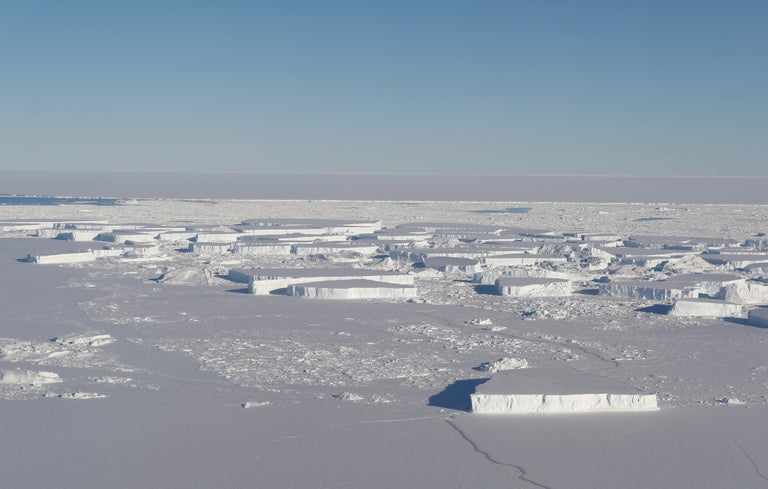

No comments:
Post a Comment
Note: only a member of this blog may post a comment.